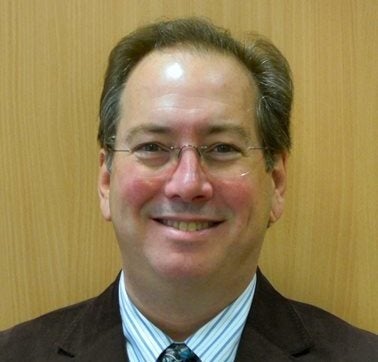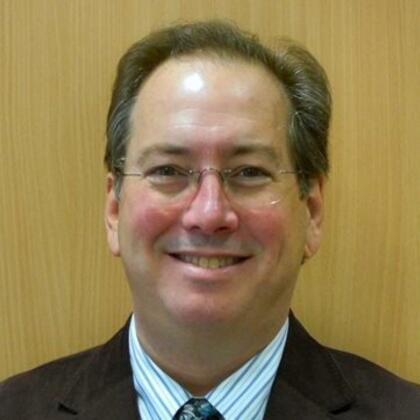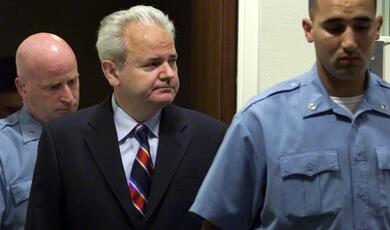A Swift Survey of Fundamentalism: An Introduction
Share
- Details
- Transcript
- Audio
- Downloads
- Extra Reading
We are increasingly aware that fundamentalism is not a monolith. It has political, cultural, social and religious implications which at times are extremely grave. Its characteristics and impact are often defined by the culture of the place in which it develops.
This Symposium will help to define and clarify 21st century forms of fundamentalism in both academic and practical terms as found in diverse environments from Israel and Palestine, within European countries, to North America.
The event will offer an opportunity to question a panel of speakers who are well placed to address this complex phenomenon.
Download Transcript
A Swift Survey of Fundamentalism
Introduction
Professor
Michael Mainelli
[SLIDE: FUNDAMENTALIST – MOI?]
Good afternoon Ladies and Gentlemen. For those of you who don’t know me, I’m a Fellow and Trustee here at Gresham College, as well as Emeritus Professor of Commerce. My job today as chair is to get the symposium going and help you, the audience, get the most out of our panel of three excellent, and interesting, speakers.
Well, as we say in Commerce – “To Business”.
When Bill Joseph, who really organised today, first approached me about chairing a symposium on fundamentalism, despite my normal immodesty I felt inadequate. I may have dabbled in philosophy somewhat seriously at some points, but as a largely a-religious business-person, it didn’t seem something I could chair. Then I realised that during my four years as Professor here at Gresham College I had witnessed and spoken about fundamentalism in business and economics, and probably was myself a fundamentalist in several areas, e.g. control of the money supply.
We held a conference last April, 22 April 2009, on Diversity & Danger that started to touch on fundamentalism as a potent element in many societal problems. In what follows Gresham regulars may hear a few echoes of my previous lectures, self-plagiarism if you will, while for the
rest of you novelty rules.
[SLIDE: DIVERSITY & COMPETITION]
Last year we made five points about diversity. First, isolated communities lose diversity and virility. Isolation is never good over the long-term, though in the short-term it may convey certain monopolistic benefits. Second, society should pursue policies that encourage diversity. Diversity among businesses is a result of competition and innovation. Adam Smith’s key insight was that markets’ harnessing of human desires, not all beneficial or benign, could achieve beneficial goals.
Third, diversity makes bubbles less likely. Bubbles are not just economic, there are intellectual bubbles and bubbles of belief. But the greater the independent diversity of opinion, the more likely the herd will reach the right answer. Fourth, decentralisation and competition seem to benefit all systems. Decentralised, competitive system superiority is widespread, though not universal. Fifth, the greater the variety within a system, the more regulation will reduce its variety. But more diversity frequently clashes with society’s increasingly risk-averse behaviours.
[SLIDE: CLOSED BELIEF SYSTEMS]
Fundamentalism refers to a belief in, and strict adherence to a set of basic principles. While often used pejoratively, like greed in open commerce, fundamentalism drives many people to do good things. People wonder how there can be fundamentalism in quasi-science such as economics and finance.
Economic and financial debating lines are as hard-drawn and fierce as those of the Gaza Strip or Belfast’s Falls Road - long-term/short-term, fiscal/monetary, Keynesian/Friedmanite, free/regulated, selfish/selfless, mutual/owned, public-sector/private-sector, rational/human, equality-of-opportunity/equality-of-outcome.
We have no shortage of fundamentalists, heretics or apostates. Let alone high-priests, shamans or gurus. As for charlatans, well… Rather ironically, while modern Keynesians seem fervent, John Maynard Keynes himself was flexible: “When the facts change, I change my mind. What do you do, sir?”
Fundamentalist principles dictate crucial policies all around us, for example letting banks go bust or saving them, quantitative easing or fiscal prudence, deflation or inflation, and the distribution of income and wealth.
In the current crisis, economic religions dictate the flows of global finance and the funds of government intervention. At Gresham College, where Sir Thomas himself funded the idea of New Learning, i.e. experimental science, it is important to admit that the concept of scientific inquiry in Commerce is worshipped more in the abstract than used to test commercial faith.
I am often reminded of Koestler’s closed belief systems. ‘Closed systems’ have three main peculiarities. First, they claim to represent a truth of universal validity which explains everything. Second, the system “cannot be refuted by the evidence, because all potentially damaging data are automatically processed and reinterpreted to make them fit the expected pattern”. Third, criticism is invalidated by shifting the argument to the motivation of the critic.
Koestler provides an example of a closed system from the orthodox Freudian school of pyschoanalysis. “…if you argued that for such and such reasons you doubted the existence of the so-called castration complex, the Freudian’s prompt answer was that your argument betrayed an unconscious resistance indicating that you yourself have a castration complex; you were caught in a vicious circle” [Koestler, 1967, pages 263-264]
Much social science is about closed belief systems. I contend that there may be five stages of belief and action progressing from cocktail party flirtation to fanaticism:
¨ Cocktail Party Atheism - one holds to the fundamental end belief of all social sciences,
Contingency Theory, i.e. it all depends;
¨ Agnosticism - one flirts with a set of beliefs, but not such that other belief systems are excluded;
¨ Faith - one has a set of beliefs, but respects the right of other belief systems to exist;
¨ Fundamentalism - one has a set of beliefs, they are right to the exclusion of other beliefs, no other set of beliefs need exist and I can impose my views over yours;
¨ Fanaticism - one has a set of beliefs, they are right, other beliefs must be exterminated for the benefit of all.
[SLIDE: ANARCHISTS OF THE WORLD, UNITE!]
Of course, if fundamentalism is a singular application of theory to the exclusion of others, then anarchism, i.e. nothing rules, is the fundamental application of the subversion that nothing will work. The only way to avoid fundamentalism is to have no beliefs at all, and not believe in having no beliefs. Rather perversely, assuming one wishes to do anything at all, anarchism nicely cycles round to the atheism of Contingency Theory. Do we hold no beliefs, everything depends, Contingency Theory rules?
Do we pick and choose as appropriate, some kind of pragmatism? What would we say about a mathematician who said 2+2? It all depends. Or 2+2?
I’ll pick a system that fits.
Pragmatic choices are not made in a value vacuum. As flexibility grows, conviction diminishes.
Meanwhile somewhere between Fundamentalism and Fanaticism people frequently converge on one belief, that “the end justifies the means”. During a crisis, with the concomitant social imperative to “do something”, fanatics can overrun non-ideological positions with ease.
In the perverse way of feed-through (or positive feedback), the fanatics
become emboldened by their ideological successes and reinforced in their beliefs. Fanaticism has its self-gratification while tolerance simply has another cheek. The über-pragmatist is as much to be feared as the fanatic. His or her ends will always justify the means.
A good indicator of the fragility of belief systems is their dependence on history. History is often fundamental to fundamentalism – it is the return to the basics, such as the Tea Party and the US Constitution at the moment. Systems coalesce around the stories surrounding beliefs. History can sometimes provide justification – decades or centuries of adherents can’t be wrong. History can also provide a trajectory – something rooted in a more distant past must have a purpose, implying some teleology. It’s not surprising to find economic fundamentalists tracing their way back to Keynes or Ricardo or Smith. The more the story matters, the more we need to question the story if what matters is what works.
Other good indicators of Fundamentalism and Fanaticism are splinter groups. Wallace Stanley Sayre (1905-1972), a political scientist and professor at Columbia University, supposedly said, “In any dispute the intensity of feeling is inversely proportional to the value of the stakes at issue.” By way of corollary: “That is why academic politics are so bitter” or “Academic disputes are so bitter because there is so little at stake.” Satirists regular satirise the triviality of fundamental heresies – just think of Jonathan Swift’s “Big-Endian/Little-Endian” controversies between Lilliput and Blefusco. But one can only have a perspective on triviality from the outside.
[SLIDE: FUNDAMENTAL CLASSIFICATIONS]
You’d expect any self-respecting business-person to reduce any complex situation to the
fundamentals - a two by two matrix.
Unwilling to disappoint you, in this slide I’d like to submit my thoughts before we begin our symposium. The slide contrasts simplicity of interpretation against strength of belief in an attempt to classify belief systems. On the vertical axis we have simplicity of interpretation, from low to high. On the horizontal axis we have strength of belief, from left to right, low to
high. The four resulting intersections are worth a quick mention:
¨ low simplicity and low belief might well be an intellectual quest. People in this quadrant are dealing with complexity and accept high levels of uncertainty. Many philosophers might fall into this box. Perhaps this is also the Anglican Church – highly tolerant and able to accept high levels of ambiguity and diversity;
¨ high simplicity and low belief might be either social cohesion or social coercion. Cohesion in the sense of simple beliefs and ceremonies that cement community, perhaps as simple as the recent Guy Fawkes celebrations in England last week.
Coercion in the sense of simple beliefs or ceremonies such as
celebrating tyrants in the Roman era, to Central Asian tyrants today or North Korean and Burmese dictators.
¨ today’s subject may be high simplicity and high belief, the ability to grasp the fundamentals and then build outwards, through social mechanisms to affect wider society;
¨ finally, low simplicity and high belief may be rare, but might well constitute sects which I’ve over-simplistically labelled as mysticism. The Nupe are a people in West Africa who have developed a very sophisticated system of prophecy based on patterns in sand. As one anthropologist studying the Nupe noted back in 1954:
“The most striking feature of Nupe sand divining is the contrast between its pretentious theoretical framework and its primitive and slipshod application in practice.” [Nader, S.F., Nupe Religion,
1954, page 63 from Feyerabend, 1988, page 50]
For me, the key issue for society is the ability to rely on freedom of thought, freedom of speech and freedom of expression. The crucial arguments on the importance of freedom of thought and expression come together in John Stuart Mill's 1859 work, On Liberty.
Debate on truth drives out falsity, and ideas on their own, true or
false, should not be feared. In fact, without debate over ideas we would never find truths. Mill argued forcefully for vigorous discussion to counter the “deep slumber of a decided opinion”. Karl Popper went further in the past century pointing out that the very foundations of knowledge and science rely on falsifiability. A theory is scientific only in so far as it is falsifiable.
Thus a theory has little validity if it exists in an unfalsifiable environment, perhaps together constituting a closed system of belief. And that’s why we have symposia, to provide falsifiable environments. So long as those of strong faith stick to the third stage of the cocktail party, - Faith, they respect the right, however feeble, for other belief systems to exist – and don’t move to the fifth stage, Fanaticism - then science and society function well enough.
[SLIDE: PROGRAMME]
Today’s programme.
[SLIDE: DIVERSITY RULES]
One of my favourite little self-awareness quotes comes from some Tea Party folks in the states on the issue of climate change - "Some people say I'm extreme, but they said the John Birch Society was extreme, too."
My final fundamentalist belief for our symposium then? “Diversity rules!” Thank you.
©Michael Mainelli, 2010
Part of:
This event was on Wed, 10 Nov 2010
Support Gresham
Gresham College has offered an outstanding education to the public free of charge for over 400 years. Today, Gresham plays an important role in fostering a love of learning and a greater understanding of ourselves and the world around us. Your donation will help to widen our reach and to broaden our audience, allowing more people to benefit from a high-quality education from some of the brightest minds.


 Login
Login







